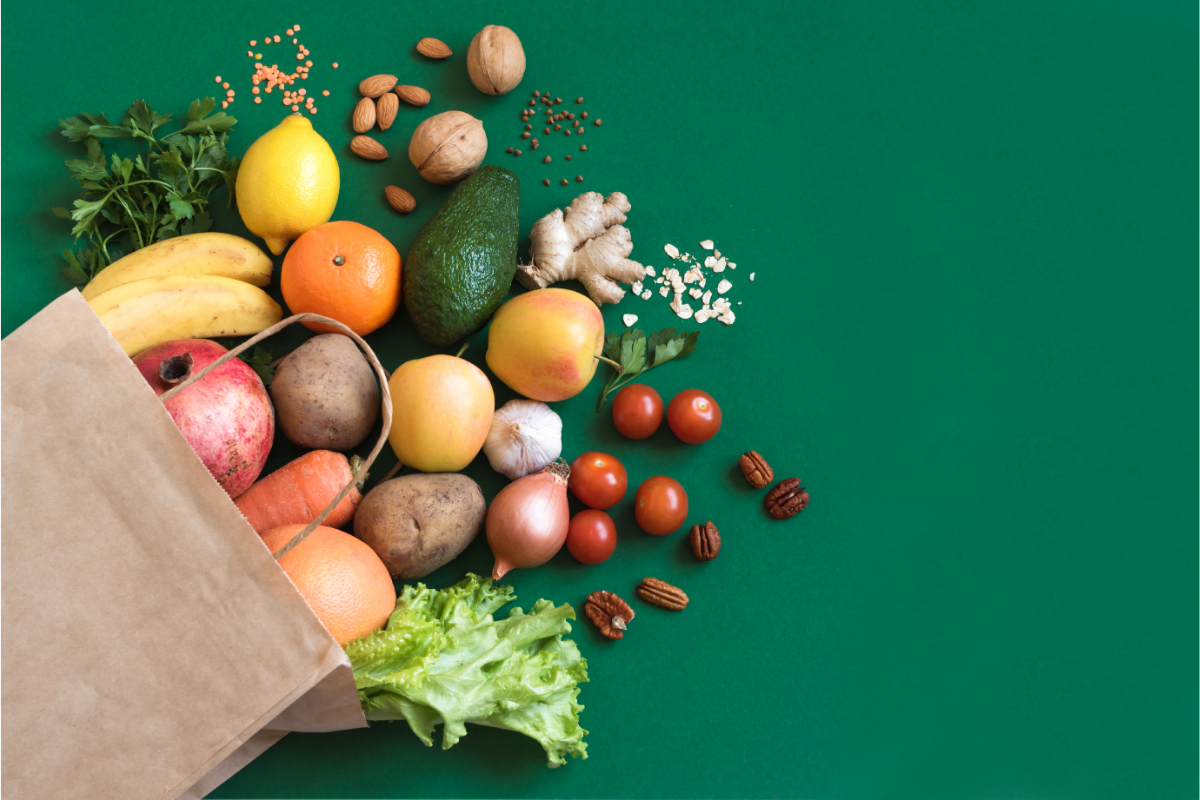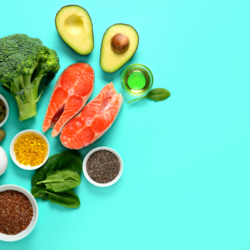In today’s world, where pollution is everywhere and processed foods are plentiful, it’s imperative that we pay particular attention to what we eat. More and more people are turning to an organic approach to food and choosing to eat organically in the interests of their health and well-being. In the following lines, we invite you to explore the benefits of an organic diet to promote a natural balance. Beyond trends, discover the scientifically-backed reasons why organic food is a wise choice for your health and that of our environment
Have you ever tried eating organic?
Many individuals and families choose to eat organically grown food because of its many benefits. Organic food develops its own natural defences to survive as it grows, making it richer in antioxidants. These products also do not contain the pesticides and other toxins that have been imposed on our modern agriculture, so they are healthier for you.
Definition
Organic food, also known as bio food, is a way of eating that is based on the production of food without the use of synthetic chemicals such as pesticides and fertilisers. Organic food is grown using methods that respect the environment and biodiversity. What’s more, organic food means that farm animals are not treated with growth hormones or antibiotics, which is good for both their health and ours.
In practical terms, this means that organic food is grown in rich, healthy soil, without the use of chemical pesticides. Organic farming often favours crop rotation practices to preserve soil fertility. Examples of organic food include vegetables such as tomatoes, potatoes and carrots, fruit such as apples and strawberries, cereals such as rice and wheat, and animal products such as meat, eggs and milk from animals reared to strict organic standards.
Organic products also comply with strict certification criteria. They must follow a very precise set of rules to meet health requirements. Organic farmers use specific farming practices, and the feed for their livestock must be 100% organic. In addition, the use of pesticides is limited to organic products, if necessary, and genetically modified seeds are not permitted. What’s more, farm animals are not exposed to growth hormones or antibiotics.
The health benefits of organic food
Organic food is rich in essential nutrients such as vitamins and minerals, because it is grown in healthy, fertile soil. They also contain fewer pesticide residues, which are associated with health problems such as cancer, infertility and neurological disorders.
What is organic food?
For a food product to be organic, it must be grown and processed in a certain way. Certified organic food follows a very strict set of rules designed to meet health requirements. Organic farmers must follow certain farming practices. Their livestock feed must be 100% organic. They can only use organic pesticides, if pesticides are necessary. They do not use genetically modified seeds and do not subject their livestock to growth hormones and antibiotics.
Where can I find organic food?
Organic food is becoming increasingly available in many places as more and more people adopt this healthy way of eating. Here are just a few places where you can find them:
- Traditional grocery shops: Many grocery chains now offer a wide selection of organic foods. When you go shopping, look for aisles specially dedicated to organic products.
- Farmers’ markets: Local farmers’ markets are excellent sources of fresh organic food. You can meet producers directly and ask questions about their farming practices.
- Natural food shops: Specialty natural and organic food shops are top destinations for organic food lovers. They offer a variety of choices from fruit and vegetables to processed products.
- Online organic pharmacies: For added convenience, many online pharmacies also stock organic products. Be sure to check for organic certification when buying online.
Organic certifications: In France, organic products are often marked with the “AB” (Agriculture Biologique) label. This label guarantees that the products have been grown or produced in accordance with strict organic farming standards. You can also find other European organic certification labels. When you buy products bearing these labels, you can be sure that they meet organic standards of quality and origin.
By understanding these different organic sources and certifications, you can make informed choices about your organic food, while supporting agriculture that respects the environment and your health.
The benefits of organic food for the body
Let’s explore in more detail the many benefits that organic food can bring to your body and your health
Better digestion
Organic foods are healthier and easier to digest than processed foods. They contain dietary fibre, vitamins and minerals that help maintain a healthy digestive system.
A stronger immune system
Organic foods contain natural antioxidants that help boost the immune system. Organic fruit and vegetables are rich in vitamin C, an important nutrient for boosting the immune system.
Healthier skin
Organic food is rich in antioxidants that help prevent the signs of premature ageing. Organic foods such as fruit and vegetables contain carotenoids that help protect the skin against damage caused by free radicals.
Higher energy levels
Organic foods are rich in essential nutrients such as vitamins and minerals. They help maintain high energy levels throughout the day.
Better sleep
A healthy, balanced diet is essential for restful sleep. Organic foods contain nutrients that help maintain restful sleep.
The positive environmental impact of organic food
When we talk about organic food, it’s essential to understand the positive environmental impact it can have. Organic farming practices are designed to protect our environment in several key ways:
- Soil preservation: Soils are a precious part of our ecosystem, but they are often depleted by conventional farming due to the excessive use of pesticides and chemical fertilisers. Organic farming, on the other hand, promotes soil health by using methods such as crop rotation, cover crops and composting. This maintains soil fertility over the long term.
- Reduced water pollution: The chemical pesticides and synthetic fertilisers used in conventional farming can contaminate water sources. In organic farming, the limited use of pesticides and the absence of chemical fertilisers reduce water pollution. In addition, organic practices help to preserve wetlands and aquatic habitats.
- Biodiversity protection: Organic farming promotes biodiversity by encouraging the coexistence of a variety of plants and animals. Organic practices such as planting hedgerows, creating wildlife refuges and promoting pollinating insects help to maintain a balanced ecosystem.
- Reducing greenhouse gas emissions: Conventional farming, with its intensive use of fossil fuels and chemical fertilisers, contributes to greenhouse gas emissions. Organic farming, on the other hand, tends to have a lower carbon footprint by using more sustainable practices and encouraging carbon sequestration in the soil.
- Air quality conservation: The pesticides used in conventional farming can contribute to air pollution. By opting for organic methods, we reduce emissions of harmful substances into the atmosphere, thereby contributing to cleaner air.
- Reduced risk of pesticide resistance: The moderate use of pesticides in organic farming limits the risk of resistance developing in pests, which is a growing problem in conventional farming.
By adopting organic food, you are indirectly supporting these environmentally-friendly farming practices, thereby helping to protect the planet for future generations. This is an essential aspect of organic food that goes beyond simply improving individual health.
How to integrate organic food into your daily life
Find out how you can easily incorporate organic food into your daily routine to promote a healthier, more balanced life. Here are some practical ideas to get you started:
- Organic Vegetable Quinoa Salad: Make a delicious quinoa salad using fresh organic vegetables such as organic tomatoes, cucumbers, peppers and spinach. Dress with organic extra virgin olive oil and lemon juice for a nutritious and refreshing meal.
- Organic Fruit Smoothie: Start your day with an organic fruit smoothie. Blend bananas, strawberries, berries and organic yoghurt for an energising, vitamin-packed breakfast.
- Grilled chicken with fresh herbs: Prepare grilled organic chicken seasoned with fresh organic herbs such as thyme and rosemary. Serve with roasted organic vegetables for a tasty dinner.
- Courgette Spaghetti with Organic Tomatoes: Replace traditional pasta with organic courgette spaghetti. Add organic tomatoes, garlic and olive oil for a light and delicious option.
- Healthy Organic Yoghurt and Fruit Snack: For a healthy snack, mix organic Greek yoghurt with chunks of organic fruit and a dash of organic honey for sweetness.
These simple examples of organic recipes show how easy it is to enjoy a healthy snack while eating organic. By using organic ingredients, you maximise the health benefits while supporting environmentally-friendly farming practices.
Shopping at an organic producer
To reap the benefits of organic food, it’s important to choose quality foods. Organic producers are professionals who use farming methods that respect the environment.
Planning your meals in advance
Planning your meals in advance ensures that you eat organic food and avoid processed foods. By planning ahead, you can also save money and avoid food waste.
Grow your own food
Another way of eating organic is to grow your own food. This allows you to control the quality of the food you eat and ensure that it is organic.
Avoid processed foods
Processed foods often contain additives and preservatives that can be harmful to your health. It’s best to avoid these foods and replace them with organic ones.
The disadvantages of organic food
Let’s also explore the less favourable aspects of organic food, to get a complete and balanced view of this method of nutrition.
The cost
Organic food can be more expensive than processed food. However, by planning your meals in advance and buying directly from an organic producer, you can cut costs.
Availability
Organic food may not be available in all regions. However, it is possible to find organic food online or in specialist shops.
Conclusion
Eating organic is a healthy and natural way to eat. Organic food is rich in essential nutrients and can help prevent many illnesses. Although there are disadvantages such as cost and availability, it is possible to incorporate organic food into your daily life by planning your meals in advance and buying directly from an organic producer.
Read more:
- https://etude-nutrinet-sante.fr/link/zone/43-Publications
- https://amu.hal.science/hal-02120094/document
- https://inserm.hal.science/hal-03170770v1







